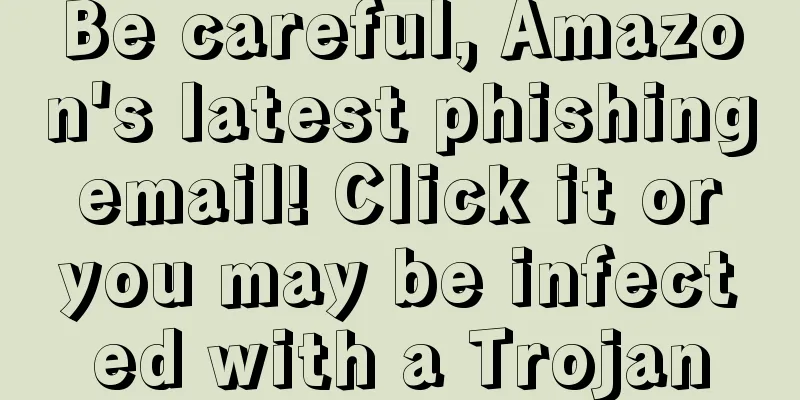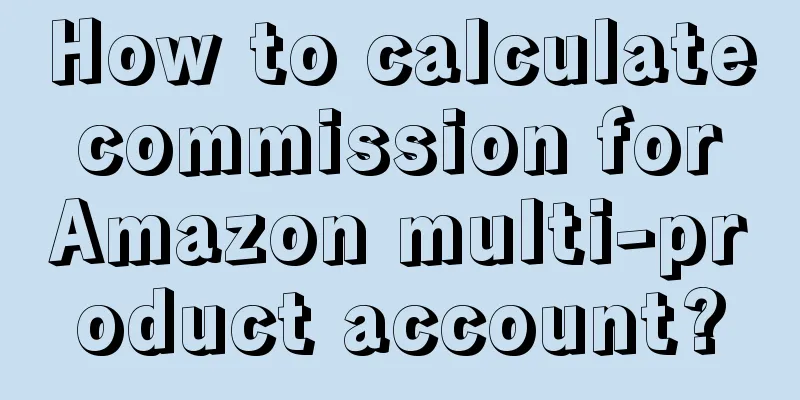Be careful, Amazon's latest phishing email! Click it or you may be infected with a Trojan

|
As competition becomes increasingly fierce, Amazon sellers are working hard every day to achieve various indicators such as product sales and customer satisfaction. As the big promotion is approaching, some lawless elements are also ready to take advantage of sellers' pain points and commit fraud. Recently, a seller shared his experience: He received an email claiming that his product infringed the copyright and asked him to remove the product link within 24 hours. The email also included 4 attachments to explain which products were suspected of infringing the copyright. It is worth noting that sellers who encounter this situation are not isolated cases. Many sellers have also stated that they have received similar emails. The title alone makes the sellers feel a sense of urgency: "Emergency Notice: Your product is suspected of infringement" and "Amazon Important Reminder: Product Infringement Risk" These emails create a sense of urgency by claiming that the seller's products are suspected of infringing rights, and require the seller to remove specific product links within a very short period of time (usually within 24 hours). The emails also include several attachments that appear to be detailed product lists. Just remember that if the email is not in the regular jpg or pdf format, you basically don't need to click it. Even large jpg formats cannot be clicked. There may be rar or code wrapped in it. This kind of email is usually sent using python. However, once the sellers accidentally click on the links in these attachments, their computers will immediately experience abnormalities, such as screen flickering and automatic execution of unknown write operations, followed by a brief network interruption before returning to normal. One victim said: "This is not a scam email, it's even worse than a scam. They will monitor your computer and all your data may be leaked. The best way is to disconnect from the Internet, back up your data, and reinstall the system." Fortunately, most sellers maintained a high level of vigilance and did not fall for it easily. Some sellers consulted a legal service agency and were told that this was likely a phishing email, and that their computers might even have been infected with a virus. The seller was terrified and immediately opened a case to contact customer service. Fortunately, the customer service confirmed that his account was normal. They also pointed out that usually, when it comes to sensitive issues such as copyright infringement, Amazon will send emails to notify sellers through official channels, rather than through private emails, which further confirmed that this was a phishing email. Recently, with the arrival of Amazon's peak season, scammers have become active, so sellers can identify emails by the following features:
Why do these phishing emails succeed so often? The reason is that sellers are afraid of product infringement. Once involved in infringement, not only may they face huge compensation, but they may also be removed from the platform or even have their account blocked. Therefore, when sellers receive such emails, they often lose their minds due to panic and fall into the scammers' trap in a hurry. In order to fundamentally prevent the risks of product infringement and fraudulent emails, sellers need to conduct self-inspection and prevention work in advance, understand the intellectual property status of their products, and ensure that there is no infringement. 1. By querying relevant intellectual property databases 2. Consult with professional intellectual property agencies 3. Use professional tools to assist in self-inspection and prevention work |
Recommend
What is Gilt? Gilt Review
Gilt is a foreign luxury flash sale website. The p...
Amazon’s sales in June were halved, and multiple platforms jointly launched a “siege”!
In a blink of an eye, 2024 is almost halfway over....
Don’t watch the warehouse fire anymore! The new policy makes it impossible for you to enter the FBA warehouse...
I think everyone has been flooded with news about...
What is CBP? CBP Review
The U.S. Customs and Border Protection (CBP) is th...
The value of online returns in the United States exceeded $200 billion in 2021! Nearly 20% were auto parts!
According to data from the National Retail Federat...
Is it a scam? Everyone is doing the same thing and playing the same game, so why is it that my ad is not getting any exposure despite spending so much money?
Anonymous user My C position Category: Outdoor too...
What is Amazon's new product selection program? Review of Amazon's new product selection program
Amazon Logistics New Selection Program, that is, e...
It’s so good! Another Amazon feature is exposed, and 6 million sellers may see a surge in orders
Know today This feature will be available soon! A...
A link with monthly sales of over 10,000 had all its negative reviews wiped out overnight? Could it be "hei" technology again?
Anonymous user My C position 7.15 stars 3.5, 96 re...
More than 1,300 Chinese companies attended the International Consumer Electronics Show (CES), but well-known technology giants were absent
It is learned that according to foreign media repo...
A woman who can conquer Amazon, even Bezos was defeated!
A few days ago, I was overwhelmed by the video art...
Shipping costs are going to rise again? Trump wants to drive out Chinese companies
The United States just issued a flight ban some t...
What is a Virtual Credit Card? Virtual Credit Card Review
A virtual credit card is a virtual account derived...
What is boxchiptt? boxchiptt review
Boxchiptt is a world-leading intelligent communica...
How much is your average monthly salary as an Amazon operator? Is this line of work promising?
text Source: Zhihu Let's update Monthly salar...









